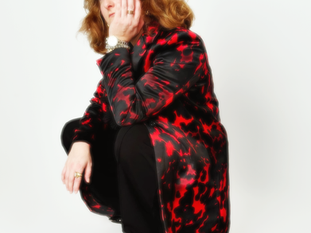
The Man, the Maestro, and the Missionary… Johanan talks art history
Aug 16, 2024
4 min read
1
9
0

We are back with another team interview! Meet Johanan, an editor and designer for Three Panels Press (3PP). Find out his favorite art eras, artists, and what he does in his free time.
Q: What made you join 3PP?
A: Well, nothing made me join, per sé. I've loved art and poetry since I was really young. I loved, and still love, the feeling of good words. The feelings that well-written prose can evoke, the beauty that glorious art captures. Being a part of this novel publication allows me to play a part in that, no matter how small.
Q: What’s your favorite art period? Why?
A: If we're talking about the purely visual arts, it's the Renaissance period (14th to 16th century) and Gothic period (mid 12th to mid 16th century). There's a fair bit of overlap between the two, timewise, but some distinct features in terms of characteristics. Both of them have very bold, flagrant colors and a distinct use of contrast. I love the intense emotions that the styles evoke, as well as the intense disregard of propriety as it was seen at the time. Given time, the human imagination will never remain captured within confines set by others, and this was the timeframe when the walls of captivity really started crumbling.
Q: Why is art history important today?
A: We never really leave the past behind, do we? In order to go forward, we need to know where we come from. To avoid disasters, we look at the disasters that have come before. As much as freedom fighters have hewn the steps of human rights from the unyielding cliff-face of society's norms, the artists of our past have made the way for the freedom and knowledge we enjoy today.
Q: What are you doing when you’re not working on things for 3PP?
A: What happened to the easy questions? I'm a bit of a Jack-of-all-trades, but I master most of them. I have a vastly fulfilling career in content creation, acting mainly as a content writer and editor. In addition to that, I'm currently working on my debut poetry book. I also feel very strongly about self-sufficiency, and am passionate about the culinary arts. So, when I'm not behind my laptop (or with my nose in a book), you'll probably find me in my garden, caring for chickens or other animals, or brewing something up in the kitchen.
Q: This or that? Explain why?
A: Picasso or Van Gogh
Van Gogh. Decidedly. I love certain types of abstract art, but it doesn't bring me the same sense of satisfaction that a lovely piece of Romantic or Surrealist art does.
Monet or Manet
Monet. I don't mind telling you that I had to check whether the pictures in my head belonged to the right names. His work had a way of evoking the potential for a reality beyond the one we live in. As though he wasn't disregarding what was, but he saw something even beyond it.
Dadaism or Futurism
I'm going to go with futurism. I try to be open-minded, but I've never managed to forge a connection with dadaism. Futurism, on the other hand, feels a bit Steampunk-y to me. I'm always game for steampunk (I'm a nerd, who'd have thought?).
Rococo or Surrealism
I'm going to have to say both, in this case. I absolutely adore the works of Salvador Dali, but I also love the classic aspect and bright yet muted colors of Rococo.
Q: What is something we don’t know about you?
A: I'm a total fantasy and sci-fi geek. From Star Trek to Dr. Who, Rothfuss to Tolkien, Wells to Verne, there's a special place in my psyche for things that go beyond the simple existence that is our own.
Q: What’s a fun random art history fact you love?
A: Da Vinci was an odd artist who only ever finished around one-quarter of his commissions. Once, he was compelled by the Pope himself to finish an artwork he'd been commissioned for... It's still unfinished today.
Q: If you could have lunch with one artist, living or dead, who would it be? Why? What’s one thing you’d ask?
A: Leonardo Da Vinci.
I've been a fan of his work for the longest time (even if he only finished some of it) and he had such a broad outlook on life. He pursued so many different aspects, fields, and ideas. Even though he wasn't always given the greatest opportunities in life, he managed to become a maestro in one of the fields he wasn't supposed to study.
One question? Only one? I'd ask him what drives him, and try to make sense of the way he sees the world. I'd try to understand the man, the maestro, and the missionary whose works still make their ripples felt in the world today.
Thank you so much, Johanan, for these insightful answers! We still have a couple of interviews left, so stay tuned as we round out this series and get to know the team.




